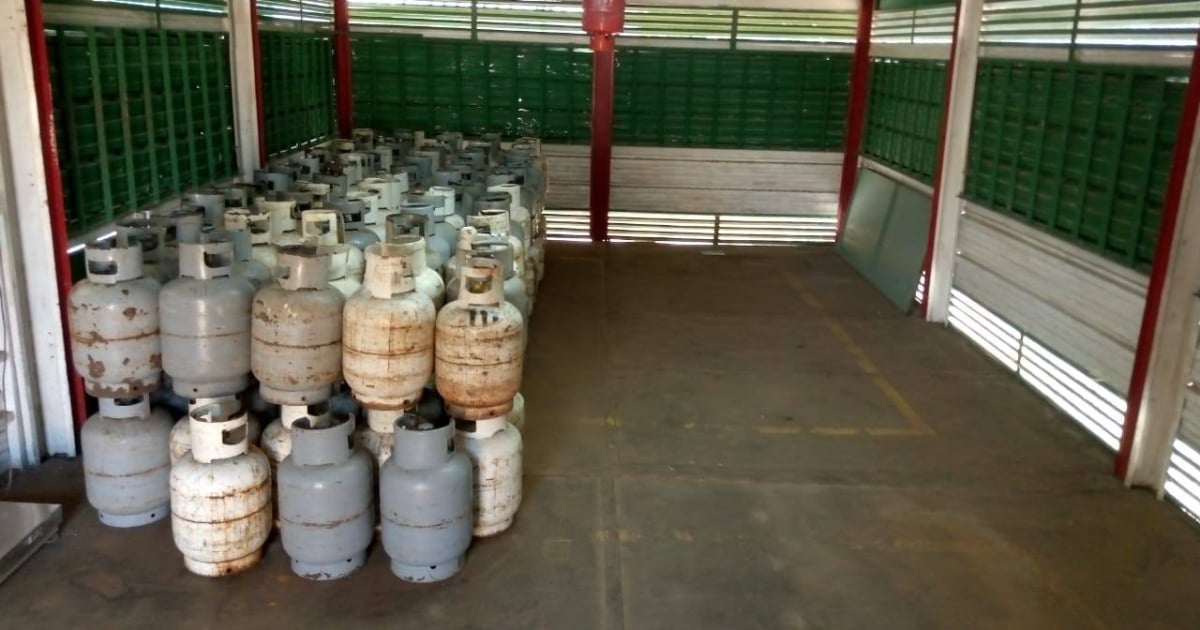The energy crisis in Cuba has reached new depths with the announcement of a halt in liquefied gas supply across several provinces. Territorial Fuel Divisions have released statements indicating a complete lack of inventory and the cessation of liquefied petroleum gas (LPG) sales. In Las Tunas, local authorities confirmed the situation in a statement: "We have no liquefied gas, no inventory, and are awaiting imports. LPG sales will not resume until further notice." This highlights the severe situation impacting millions of Cuban households.
Cienfuegos is also caught in this critical scenario. Local officials have reported that due to a malfunction at the Cienfuegos Refinery, it will be impossible to guarantee LPG sales starting Thursday, January 23. An official statement noted that the refinery is undergoing a technical shutdown "with no restart forecast," exacerbating the energy crisis in the region. The Cienfuegos Refinery plays a crucial role in the island's fuel processing, and its halt directly affects the supply of liquefied gas, a vital resource for many Cuban families.
In response, authorities have stated that LPG sales in the city are suspended "until further notice," leaving homes without one of their primary cooking fuel sources. Meanwhile, in Camagüey, the Liquefied Gas Depot's management has announced that, due to the inability to ensure supply, prepaid purchase cards owned by residents will be collected. Customers who return their cards will receive a numbered receipt as proof of delivery and their place in line for future purchases. This process will occur at specific times set by the authorities: Monday, Wednesday, Thursday, and Friday from 8:00 a.m. to 12:00 p.m. and 3:00 p.m. to 6:00 p.m.; Tuesday and Saturday from 8:00 a.m. to 12:00 p.m.
In Matanzas, José Luis Lemus Gil, Head of Liquefied Gas, stated that the restrictions on gas distribution are temporary and that LPG will only be provided to certain sectors of the population. According to the statement, supply will be limited to customers whose contracts allow only two cylinders per year and those officially classified as bedridden by the health system, according to lists for the semester starting in January 2025. The head of liquefied gas remarked, "It's well-known that we've had a product deficit in recent months, causing delivery issues, despite our efforts to meet needs."
Despite these assurances, citizens' frustration remains high, as they face widespread shortages of other essential products. For months, Cuba's LPG distribution has struggled, affecting millions reliant on this fuel for cooking. Financial challenges have been cited as the main cause, complicating payments to international suppliers and delaying product imports.
In December 2024, the arrival of a ship carrying 9,377 tons of LPG at the "Hermanos Díaz" refinery in Santiago de Cuba allowed a temporary resumption of distribution in some areas. However, authorities acknowledged this amount was insufficient to meet the pent-up demand, leaving many without access to the fuel.
The situation worsened in January 2025, with over 100,000 homes in Matanzas province impacted by the LPG shortage. The lack of cylinders and inadequate distribution forced many families to turn to alternatives like firewood for cooking, marking a setback in living conditions and posing health and environmental risks.
Amid the persistent shortage, the Cuban government has been coordinating the arrival of tankers to restart LPG distribution. Authorities have pledged a gradual solution for affected areas, beginning with partial offloading in Santiago de Cuba and distribution in the eastern part of the country. However, the limited distribution capacity compared to high demand has fueled dissatisfaction and frustration among the population, who face long queues and daily life tensions.
Understanding Cuba's LPG Crisis
What caused the liquefied gas supply halt in Cuba?
The halt is primarily due to financial issues affecting payments to international suppliers and delays in product imports, coupled with a technical shutdown at the Cienfuegos Refinery.
How are Cuban families coping with the gas shortage?
Many families have resorted to alternative methods like using firewood for cooking, which poses health and environmental risks.
What measures has the Cuban government taken to address the crisis?
The government is coordinating the arrival of tankers to restart LPG distribution and has promised a gradual solution, starting with partial offloading in Santiago de Cuba.
